Faculty Supervisor: Professor Deyi HOU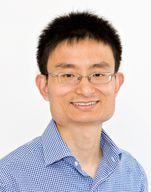
University: Tsinghua University, Beijing, China
Department: School of Environment
Project Topic: Assessment of the impact of arsenic contamination on groundwater resource and public health in China
Description: Areas of chronic endemic arsenic poisoning have been discovered in China since the 1960s. Screenings of drinking water samples collected by the Chinese Ministry of Health suggest that an estimated 5.6 million people are currently exposed to high concentrations of arsenic. Given China’s vastness, it would take several decades to sample all of the millions of wells to determine the precise spatial occurrence and magnitude of arsenic contamination across the country. However, through data analysis, it has been found that high concentrations of arsenic occur in certain environmental conditions and environmental features, like closed basins in arid or semi-arid areas, depleting aquifers with high pH levels, geothermal water, and mineral water in mountain areas. Several major anthropogenic sources of arsenic pollution in China have also been identified, including the mining, smelting, and chemical industries.
The student research assistant will be part of a project that further examines, summarizes, and analyzes the data and existing research regarding arsenic contamination in groundwater, as well as its impact on public health in China.
Faculty Bio: Prof. Hou is an Associate Professor at Tsinghua University. He received his Ph.D. in Engineering from the University of Cambridge, U.K. His research interests include: green and sustainable remediation technologies for the clean-up of contaminated soil and groundwater; regional distribution of soil and groundwater pollutants; reduction of Pb, As, and Hg pollution; risk control and remediation optimization strategies; sustainability assessment for environmental remediation; linking contaminated site remediation with public participation; and environmental behavior, policy, and management.
******************************************************************************
Faculty Supervisor: Professor Jing CAO
University: Tsinghua University, Beijing, China
Department: School of Economics and Management
Project Topic: Analysis of China’s market-based policy instruments (environmental tax reform and national carbon market) and their effects on curbing air pollution and greenhouse gas emissions
Description: For a long time, the Chinese government has been relying on environmental or energy-intensity targets to regulate and control air and water pollution and greenhouse gas emissions. However, China has recently implemented a series of new market-based policy instruments, such as an environmental tax reform that shifts from pollution levies to environmental taxes, and has announced a new national carbon market, scheduled to be launched in 2020.
The student research assistant will be part of a project that examines the policy design and potential effects of these new market incentive-based instruments, by comparing them with with similar instruments applied in other countries.
OR
Project Topic: Ban on coal use in Beijing-Tianjin-Hebei national capital region in China: policy designs, subsidies, and effects
Description: Suffering from severe air pollution, the Beijing-Tianjin-Hebei national capital region (also known as the Jing-Jin-Ji region) has aimed to phase out residential coal use by switching from coal to natural gas or electricity. One of Beijing’s goal is to cut its coal consumption to below 5 million tons and limit its coal use in smog-prone areas by 2020. With a $250 million loan from the Asian Infrastructure Investment Bank (AIIB), Beijing is undertaking a large-scale project to connect about 216,750 households from 510 rural villages to the natural gas distribution network by 2021. Meanwhile, Hebei, China’s biggest steel-producing province, has provided 4.65 billion Chinese yuan (about $0.73 billion) to over 2.5 million households to subsidize their conversion to gas or electric heating.
The student research assistant will be part of a project that examines the design of the policy, including studying local capacity to accommodate such dramatic changes in energy uses (such as, gas pipe infrastructure, natural gas markets, etc.), as well as its effects through conducting cost-benefit analysis. The results of this research may help inform future designs of residential coal use policies in other smog-prone cities in China.
Faculty Bio: Prof. Cao is an Associate Professor at Tsinghua University. She is also the Deputy Director of the Institute for Urban Governance and Sustainable Urbanization; the Deputy Director of the Institute of Energy, Environment, Economy; the Deputy Director of the Hang Lung Center for Real Estate; and a faculty affiliate of the Harvard-China Project. She received her Ph.D. in Public Policy from Harvard University. Her research focuses on environmental economics, energy economics, and climate change policy modeling analysis.
******************************************************************************
Faculty Supervisor: Professor Ming ZHAO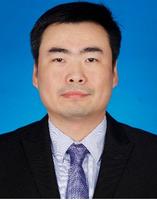
University: Tsinghua University, Beijing, China
Department: Lab for Biomass Energy & CO2 Capture and Utilization Technologies (LBC)
Project Topic: Sustainability assessment (life cycle basis) of algal technology
Description: Carbon Capture, Utilization & Sequestration (CCUS) is seen as one of the major technological pathways to directly reduce emissions of anthropogenic CO2. Yet most of the current CO2 capture techniques are not ready for commercialization. The only technology that has been commercialized so far is amine scrubbing, but it suffers from high costs, corrosion, and environmental concerns. Even if the commercialization of CO2 capture technologies can be achieved, how to deal with the captured CO2 remains a question. Chemical reduction of CO2 to fuels is interesting but not yet economically viable, while geological storage of compressed CO2 is highly objectionable to the public. In light of these facts, the Lab for Biomass Energy & CO2 Capture and Utilization Technologies has been focusing on biological fixation of CO2 by algae, which seems more sustainable and beneficial than chemical reduction. The algae would capture CO2 through photosynthesis and then be harvested for fuel or value-added products like lipids and protein. Since algae could be cultivated in waste water, the algae technology would also yield an additional benefit of decreasing contaminants and heavy metal in the water.
The student research assistant will be part of a project that establishes a life cycle-based model to assess the economic, environmental and social sustainability of algal technology. The results of this research may help identify whether algae is a promising technology for low-carbon developments.
Faculty Bio: Prof. Zhao is an Associate Professor at Tsinghua University. He is also the Director of the Lab for Biomass Energy & CO2 Capture and Utilization Technologies (LBC). He received his Ph.D. in Chemical Engineering from the University of Sydney, Australia. His research interests include: thermo-chemical conversion of biomass (wastes) into clean energy and value-added chemicals; advanced materials and processes for CCU; modelling studies for new process designs and solid waste management.
******************************************************************************
Faculty Supervisor: Professor Ye WU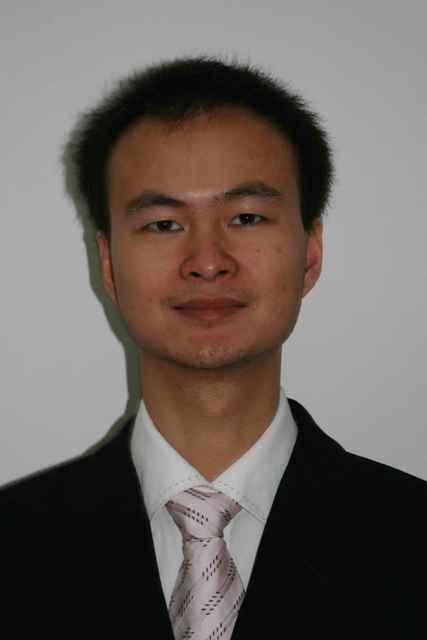
University: Tsinghua University, Beijing, China
Department: School of Environment
Project Topic: Customer and climate benefits of electric vehicles: insights from individual travel patterns in an East-Asia megacity
Description: Electrification of transportation is expected to play a critical role in limiting global temperature rise within 2°C as agreed in the COP-21 Paris Climate Agreement. The potential climate benefits from electrification of personal road transportation will depend on how broadly electric vehicles (EVs) are accepted, how those that are accepted are actually used, and how the electricity provided to those vehicles is generated. All three of these factors vary considerably by geographical region. This heterogeneity raises the need for in-depth understanding of individual driving needs and electrification strategies.
The student research assistant will be part of a project that applies an integrated assessment model, based on individual driving profiles in an East-Asia megacity (big data) acquired using on-board GPS, to assess customer savings and greenhouse gas emission mitigation from electric vehicle adoption. The results could help precisely quantify the climate benefits from EV adoption, with consideration of personal driving demands, regional economic features, and power system carbon intensity.
Faculty Bio: Prof. Wu is a Professor and Associate Dean of the School of Environment at Tsinghua University. He is also the Deputy Director of the State Environmental Protection Key Laboratory of Sources and Control of Air Pollution Complex. Prof. Wu received his Ph.D. in environmental engineering from Tsinghua University. His research areas include: evaluation of life-cycle energy and environmental impacts of advanced vehicle technologies and alternative transportation fuels; analysis of characteristics of vehicular emissions and development of control planning of vehicle emission pollution; and development of urban and national transportation database and inventory on energy consumption and emissions of greenhouse gases and criteria air pollutants.
******************************************************************************
Faculty Supervisor: Professor Xi LU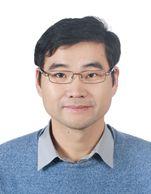
University: Tsinghua University, Beijing, China
Department: School of Environment
Project Topic: Research on the environmental effects of solar photovoltaics (PV) in China
Description: To realize the energy transformations required to fight climate change and control air pollution, the Chinese government has been heavily promoting the development and expansion of the solar photovoltaic (PV) industry through various preferential policies. By the end of 2016, the cumulative installed capacity of solar PV in China had become the largest in the world. The rapid development of solar PVs has also been accompanied by controversy around the high pollution and energy consumption of the solar cell industry. For example, the production of polycrystalline silicon, which is a raw material used in solar PV production, generates exhaust gas that contains high concentrations of silicon tetrachloride, a substance that is highly polluting and dangerous to human health. Polycrystalline silicon production is also an energy-intensive process, which requires higher power generation capacity in the regions where solar PV industries are located, and which in turn is still predominantly fossil-fuel based. The student research assistant will be part of a project that investigates the environmental impact of the life cycle of solar PV power generation systems, including the production, operation, and recycling processes. The results could help quantify the environmental implications of China’s low-carbon energy transformation.
Faculty Bio: Prof. Lu is an Associate Professor at Tsinghua University and a faculty affiliate of the Harvard-China Project. He received his Ph.D. from the School of Engineering and Applied Sciences at Harvard University. His research focuses on the technical, economic, and environmental dimensions of low- or zero- carbon energy sources as a means to reduce emissions of greenhouse gases (GHGs) and air pollutants.
******************************************************************************
Faculty Supervisor: Professor Amos TAI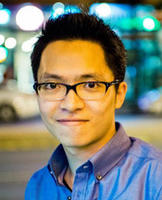
University: The Chinese University of Hong Kong
Department: Faculty of Science
Project Topic: Impacts of air pollution on crop yield and food security in China
Description: Using a combination of statistical and mechanistic models integrated with an ensemble of observations, we investigate how the severe air pollution problems in China have affected and will affect crop yield in the coming few decades, and examine the implications for the co-benefits of air pollution control strategies for both public health and food security. We also examine how better agricultural management approaches may help alleviate air pollution problems in China.
Faculty Bio: Prof. Tai is an Assistant Professor at the Chinese University of Hong Kong. He received his Ph.D. from the School of Engineering and Applied Sciences at Harvard University. His research interests include: atmosphere-biosphere interactions and Earth system modeling; interactions between air pollution, climate change, ecosystems, and agriculture; and air quality, land use, and sustainable agriculture.
Note: This position has been filled.
